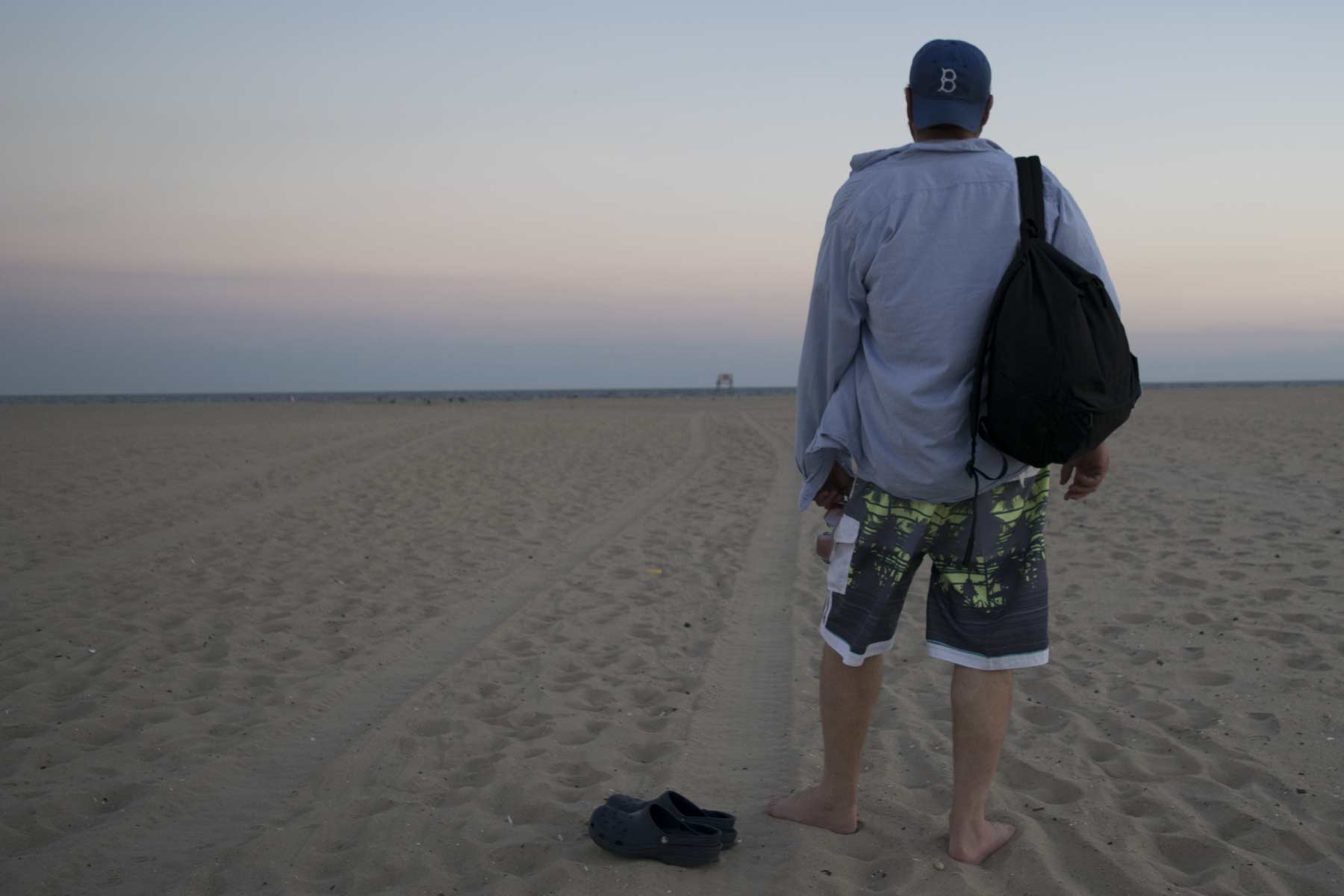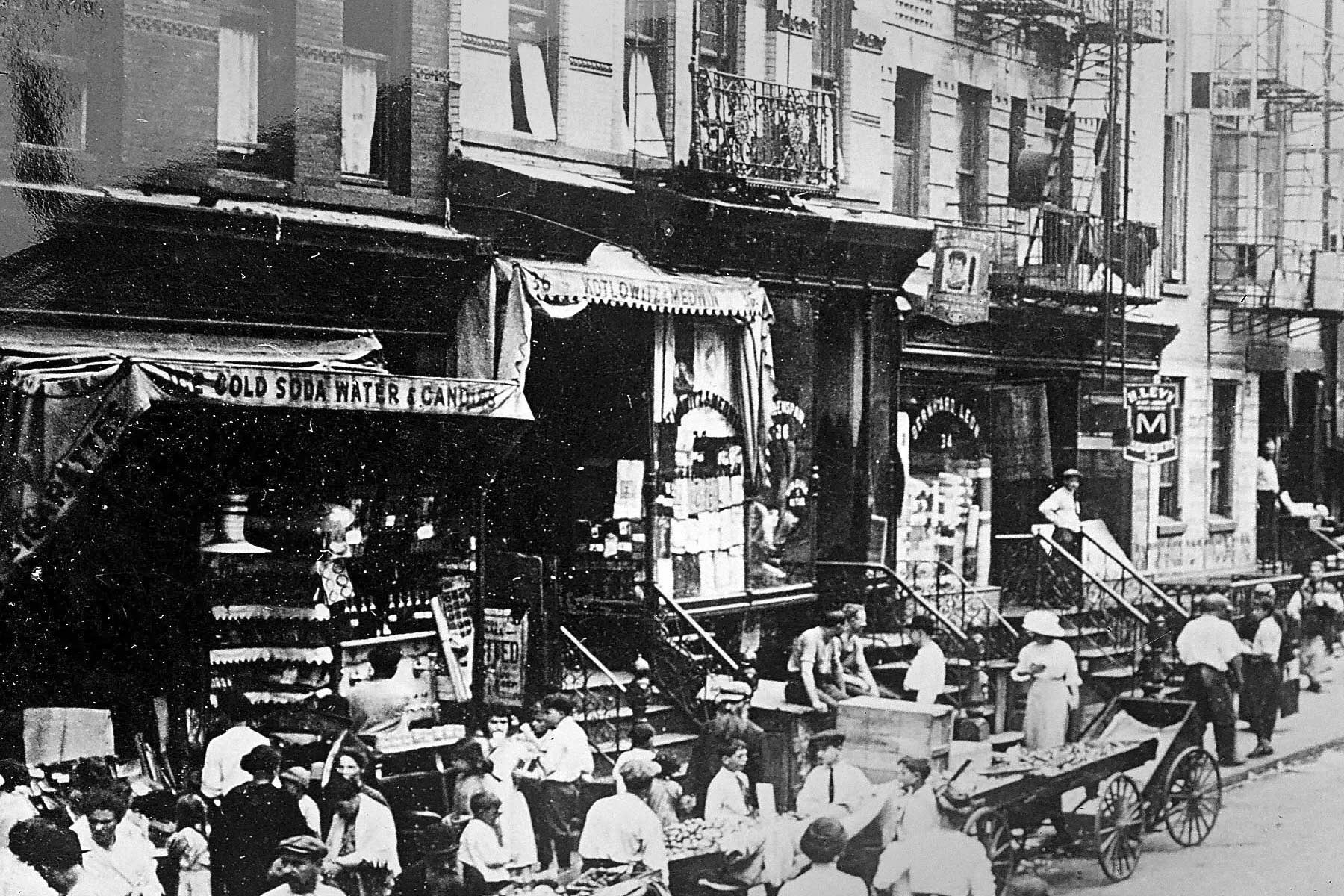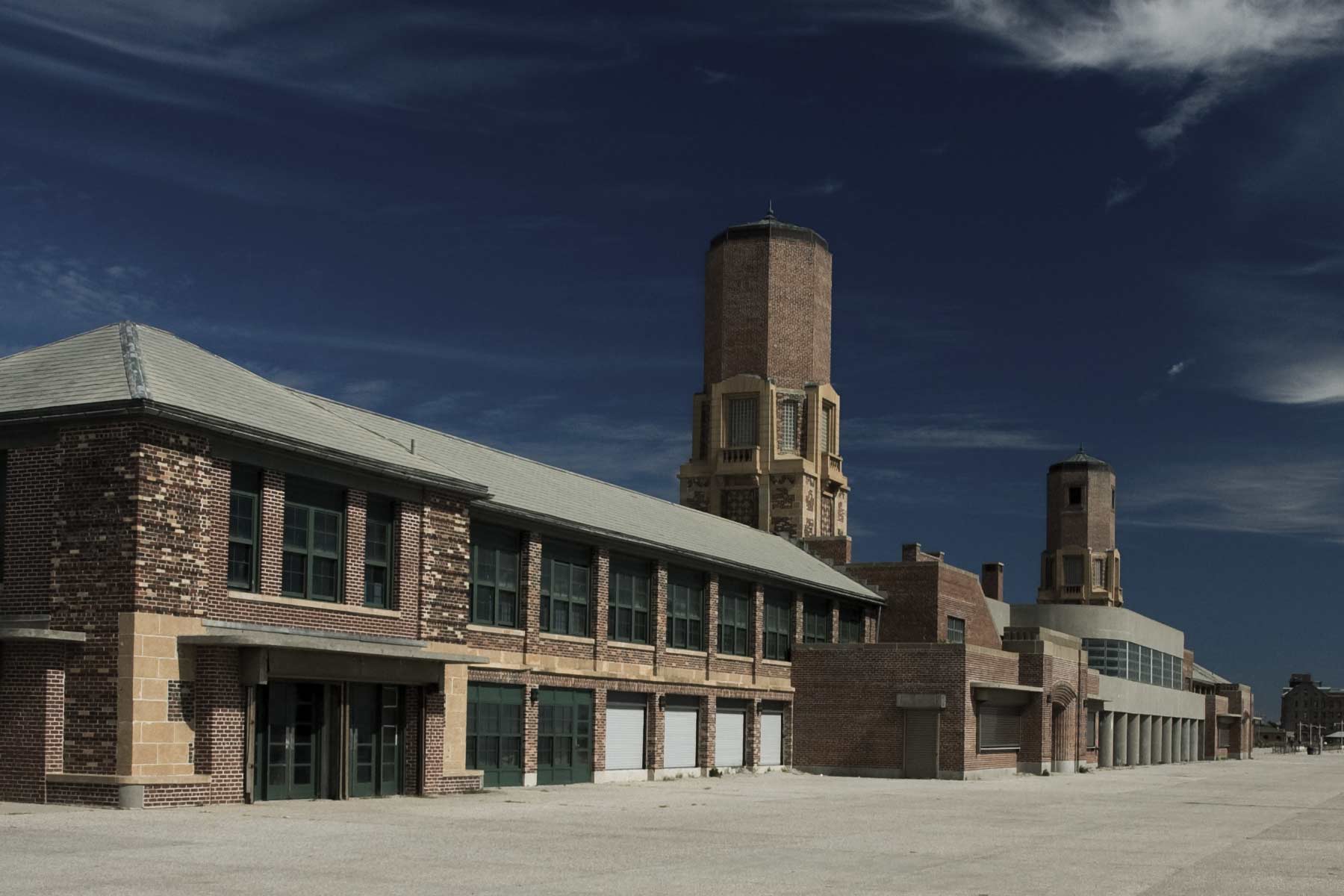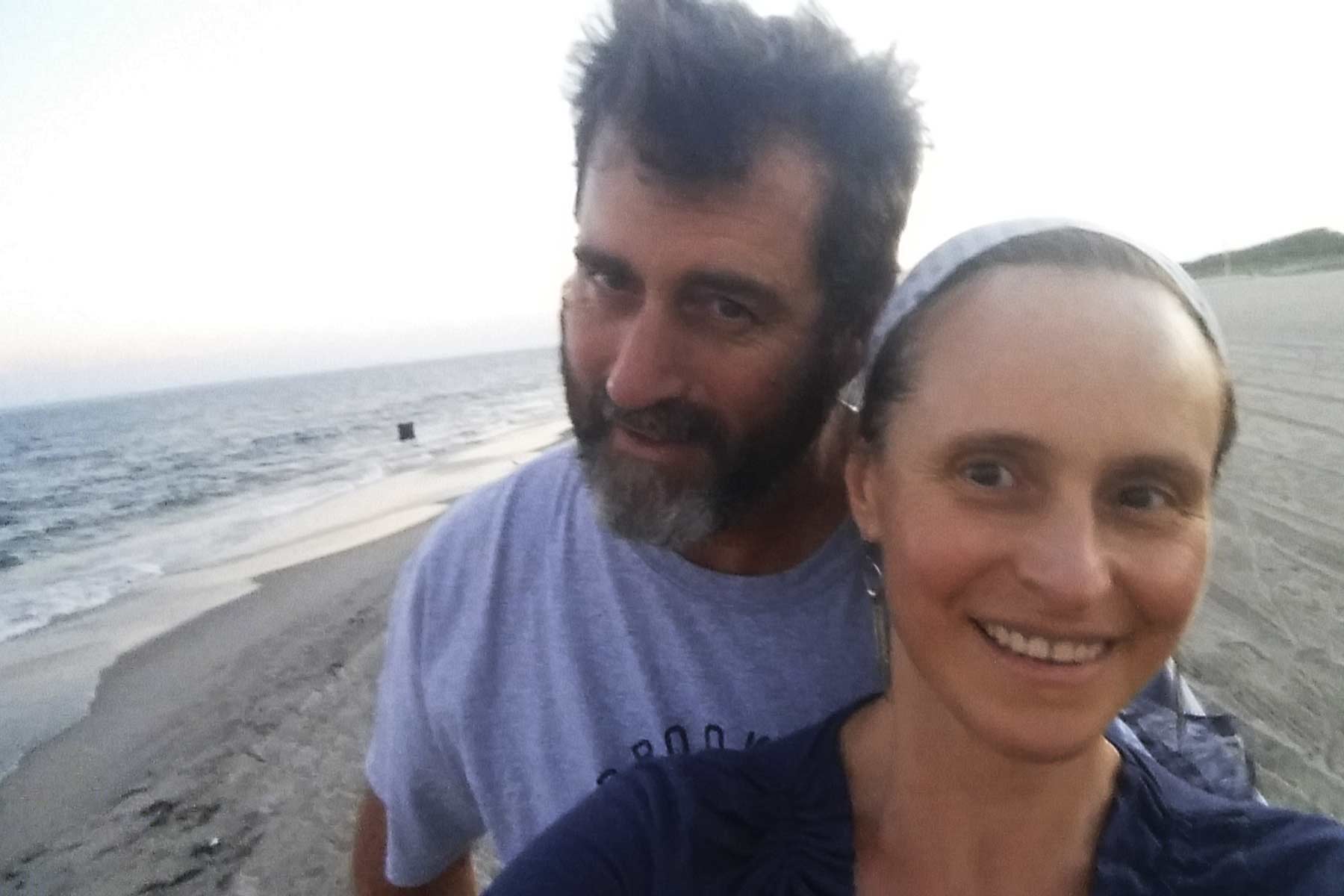
Rachel needed a break from the beard biz so one evening last week we decided to get out and enjoy the last moonrise of summer.
 Rockaway Beach | Jacob Riis Park
Rockaway Beach | Jacob Riis Park
August in NYC has been hot and humid. And like I told a friend at work, if it wasn’t that way it just wouldn’t be August in NYC. If you never rode a subway in NYC in August then you are missing something of the spirit of the city. And today, with air-conditioned cars it’s nothing like it once was. I remember as a kid going to the office with my Dad one hot, humid August day. I don’t remember what the occasion was because it was a rare event. Maybe he just wanted to show me what his summer commute was like. I’ll never forget it. It was hot and humid and everyone was jammed in and sweating. It must have been 95 degrees outside with 95% humidity and the subway platforms and cars were steaming. I think it was there and then I decided I didn’t want to work or I didn’t want to live in NYC or something or the other like that. I remember hot summer nights as a young boy in Far Rockaway with the windows open for lack of an air-conditioner and the planes headed to Kennedy Airport roaring over every 2 or 3 minutes. I don’t know how we slept. Later, at the University of Maryland I learned just how hot and humid August can be but nothing touches that subway ride with my Dad. For a little while anyway, I would pour his tripe vodka over ice and bring it to him when he came home at the end of the day. I understood, and I think that made him very happy.
But all of this pales when compared to the memories of the Lower East Side. The hot, crowded tenements that my grandparents and great grandparents began their lives in America in. My parents themselves had no memories of it and so for me all that’s left is the stories I heard, mostly from my maternal grandfather. One in particular is truly unforgettable, and I have reflected upon it at different times in my life.
 The Lower East Side 1920's
The Lower East Side 1920's
He always told it with misty eyes, and it went like this. He was a boy on the Lower East Side and it was time for him to start working and earn a few dollars to help out the family. His father, my great grandfather, was a man whose eyes were focused more on the next world than this one and spent his days in the holy pursuits of study, prayer and deeds of kindness. So my grandfather, still a young boy, seeing a need to address the mundane, took a job with a taylor delivering suits to customers in the neighborhood. He would stretch out his arms wide (he would demonstrate) and the taylor would drape the suits over them so as to deliver them finely pressed. Struggling under the weight and agonizing from the pain, he would trudge the tenement steps to make his deliveries. It was always hard to imagine how painful and difficult that was and how disappointing it must have been to spend a childhood summer that way. Eventually he would become a podiatrist and move to Brooklyn with my grandmother and raise a family that knew the joys of summer days spent at Brighton Beach and Coney Island, or Bradley Beach on the Jersey Shore.
Why do I tell all this? Because one needs to understand this in order to understand where Rachel and I escaped to the other evening, clutching on to the last days of summer, grabbing the good even and as it fades away. Where did we go? To Riis Park, named after Jacob Riis a newspaperman and social reformer who saw the plight of the tenement dwellers in the city and, with the help of New Deal money and the initiatives of Robert Moses built a beach resort for the masses near the western tip of Rockaway Beach.
 Rockaway Beach | Jacob Riis Park
Rockaway Beach | Jacob Riis Park
Today, there are efforts to renovate and resuscitate Riis Park, it’s glory years long gone. It looks like the old bath house is being slowly restored, a sort of urban renewal project on the beach. The overall feel of the place, at least when it’s empty, as it is on weekday summer evenings and nights, is dystopian. Who builds massive, red brick buildings at the beach? The answer? Social reformers and planners swimming in free money. And as I started to talk to Rachel about all this and more, perched on a lifeguard’s chair, with the moon rising over the waves, it went something like this:
Barry: My feelings are so mixed here.
Rachel: What do you mean?
Barry: I don’t know, what does a perfectly beautiful dystopian full moon rising over the ocean feel like?
Rachel: I don’t know. What does it feel like?
Barry: I don’t know. But it’s a beautiful moonrise.
 Barry & Rachel | OneDTQ Beard Care
Barry & Rachel | OneDTQ Beard Care